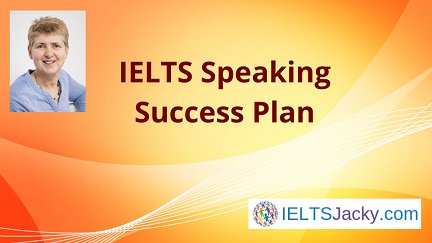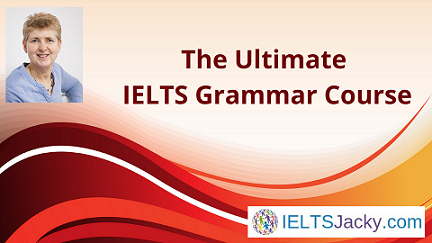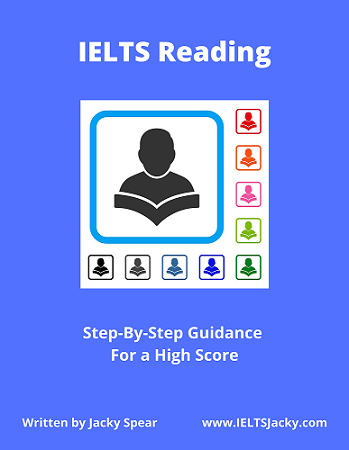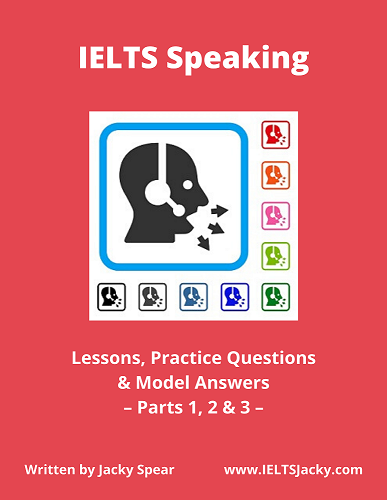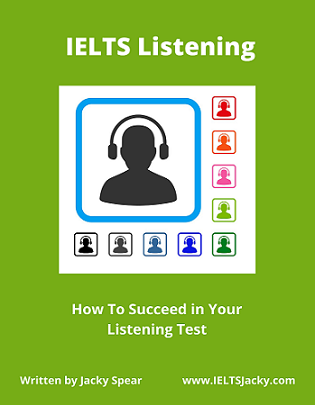9 More Tips For IELTS Reading
The Reading section of this website is crammed full of tips for IELTS Reading but these are the second set I’ve singled out for you to take particular note of.
If you haven’t already studied my Top 7 IELTS Reading Tips, you’ll find them via this link.
Tips To Improve Your Score
1) Learn to scan for key words
Each question will contain key words that will help you to locate where the answer is. Or, the key words could be in the answer options depending on the type of question.
A key word tells you about the main idea. In a test, it’s a word that links the question and the answer. Learning to scan for them will save you lots of valuable time.
Key words won’t usually give you the actual answer but they’ll show you where it is. You then need to read in detail to find the answer itself.
The most obvious key words and the easiest to spot, are numbers, dates and names. Others should also be fairly easy to pick out and will usually be nouns or verbs.
However, synonyms will often be used so you need to be on the lookout for these as well.
Let me show you some examples from a real exam paper of how to identify key words and how to use them to locate the part of the text containing the answer.
First, here are the questions. I’ve highlighted the key words in each question, using a different colour for each question. These are the words to scan the text for in order to find the locations of the answers.
I’ve also underlined the correct answer and also its location in the text. (* Note that in Question 10, the correct answer is the statement not mentioned in the test so there is nothing to underline.)
Underneath is the text. It’s taken from the official British Council IELTS website. Beneath the text are my notes for each question.
I've also created PDF’s of both the text and the questions that you can download and print to save you scrolling up and down:
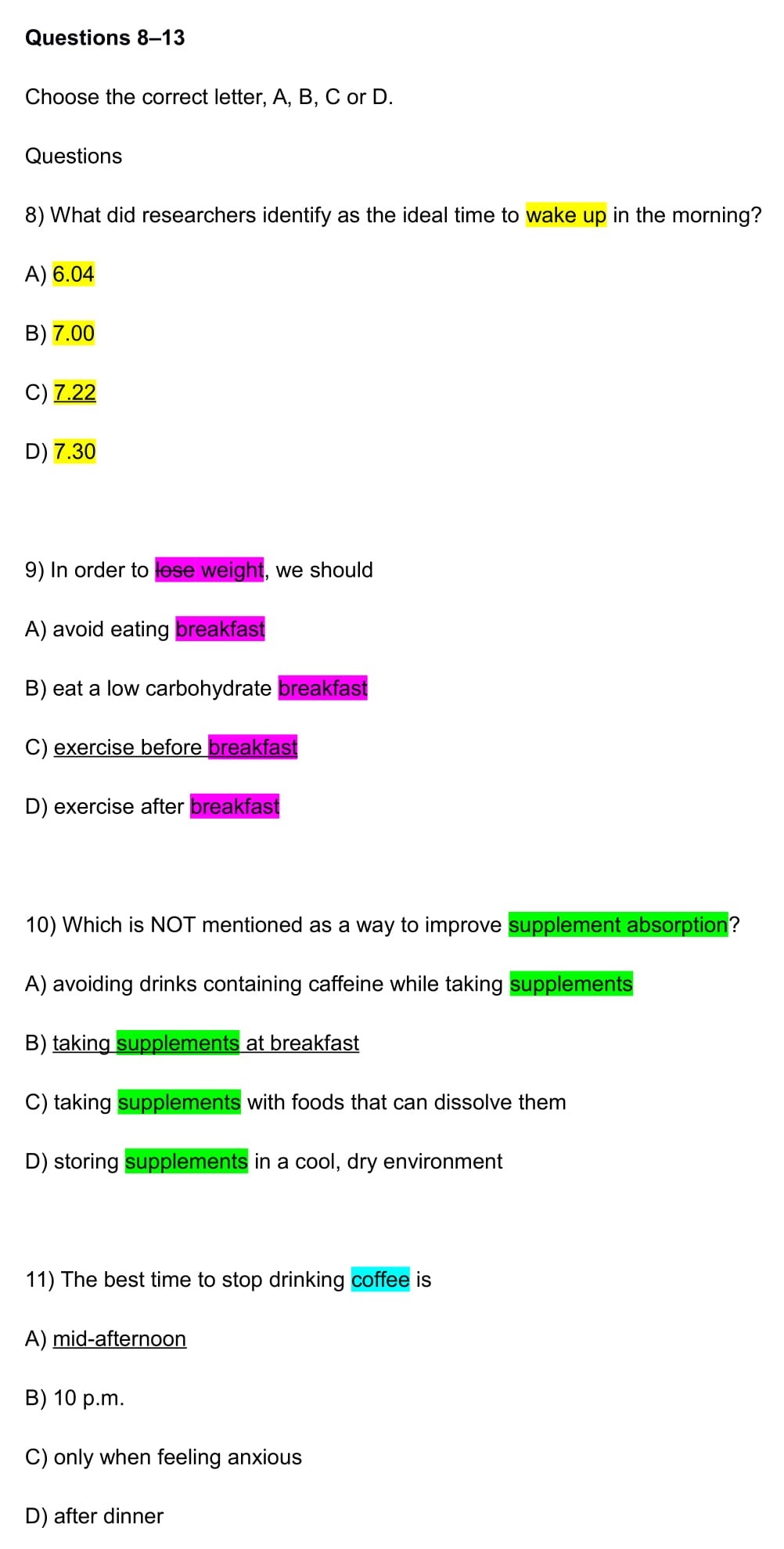
* Note - we are only working on questions 8 - 11. In the exam, there were also two other sets of questions on this text.
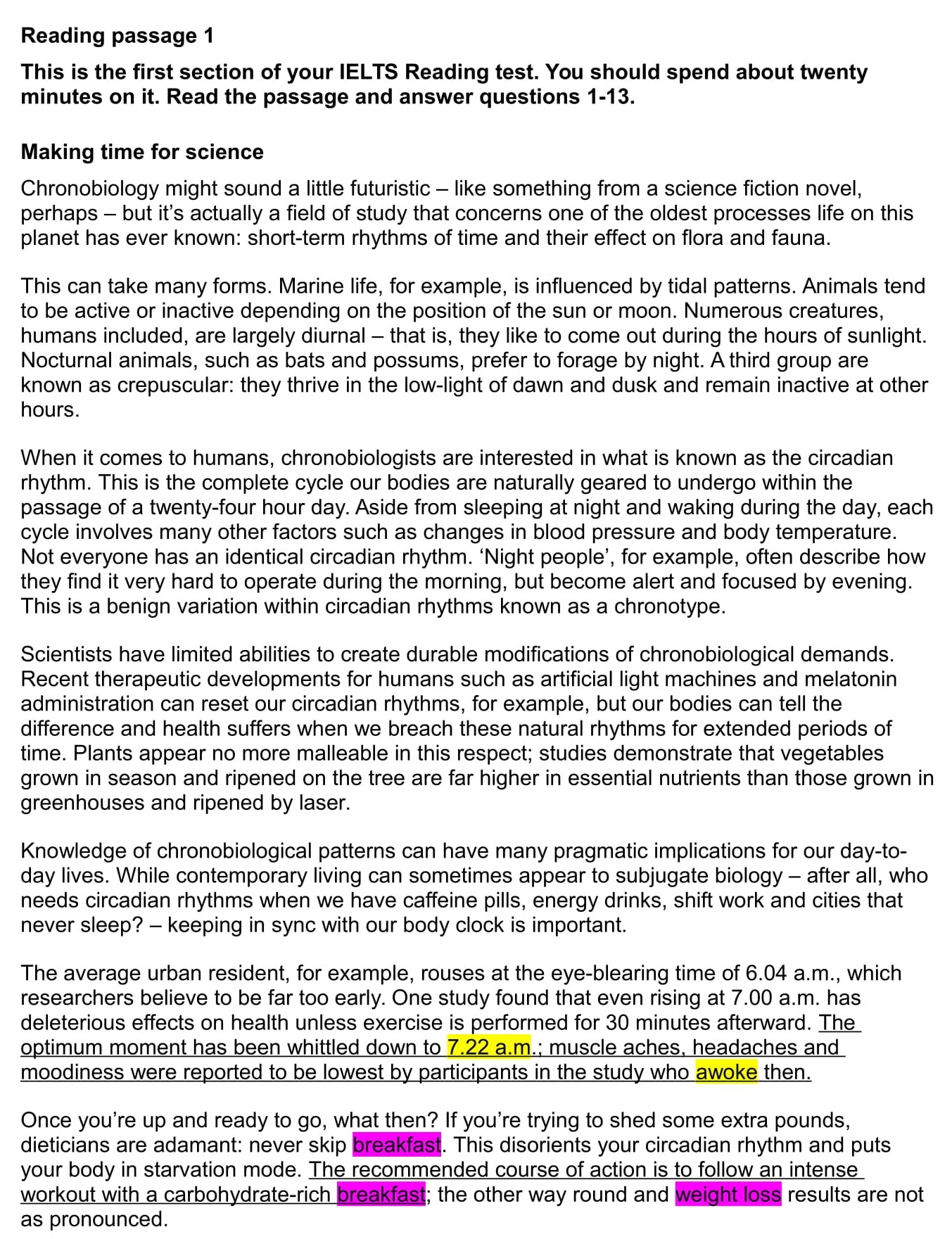
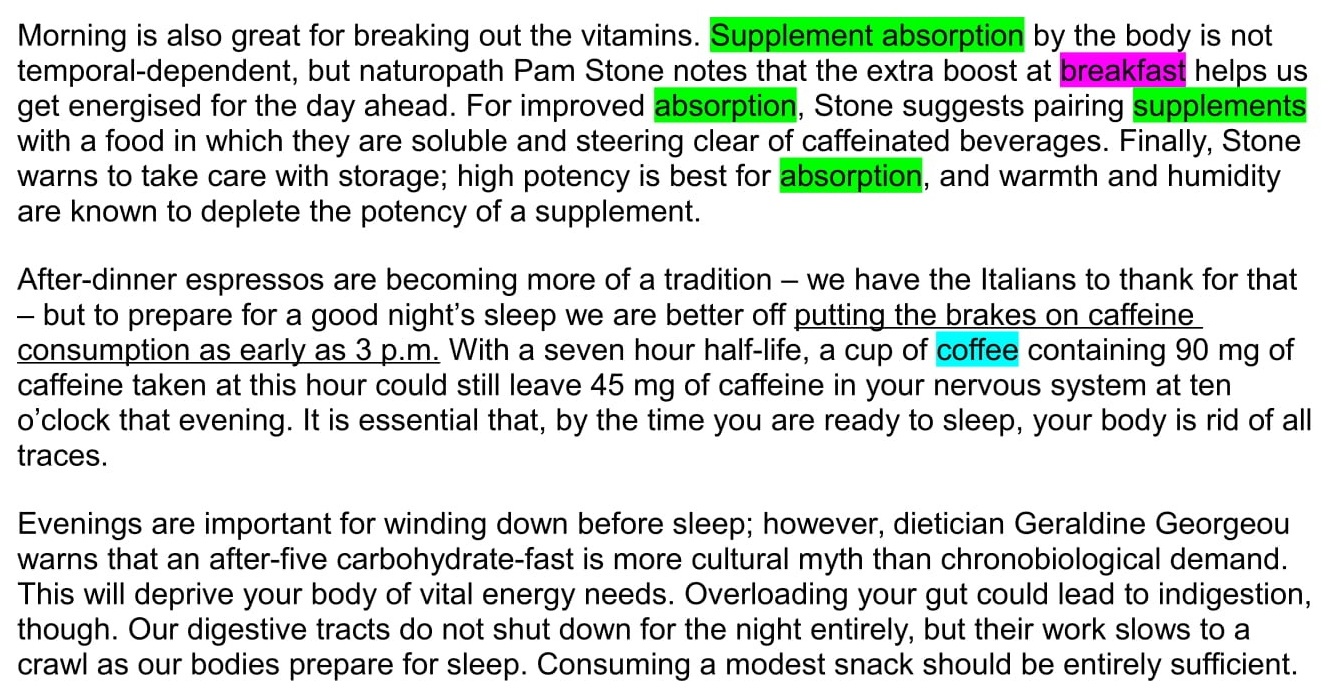
Source: British Council Website
Questions notes
Question 8 – The four times listed in answers A–D (6.04, 7.00, 7.22 and 7.30) are key words. Scan the text for each of them to see which are present. They are easy to spot.
In fact, three of them are present so you need another clue to help you decide which is the right answer. The key word in the actual question is ‘wake up’ and looking at the text I can see the word ‘awoke’, which is the past tense of ‘to wake up’.
I now know the sentence the answer is in and on reading it in detail, it is clear that the answer is 7.22.
Question 9 – The keywords are ‘lose weight’ and ‘breakfast’.
On a quick scan through, I can’t find ‘lose weight’ so I’m guessing that a synonym has been used. I scan for 'breakfast' instead as this should be quicker to find than searching for a synonym.
Yes, I find ‘breakfast’ 3 times.
Now I can look more closely at the sentences that contain ‘breakfast’ to see if I can spot a synonym for ‘lose weight’ as this will show me where the answer is.
I quickly see that they’ve used ‘weight loss’ which very similar to the key word in the question. I’ve now located the sentence with the answer in.
Question 10 – I searched for the keywords ‘supplement’ and ‘absorption’. Both occur several times in one paragraph so I know immediately that this is the paragraph I need to read in detail to find the answer.
All I need to do now is to read the paragraph word by word to identify the correct answer.
Question 11 – This has just one key word to scan for – 'coffee'. It's in the second to last paragraph. As with the last question, it’s now just a matter of reading in detail to locate the answer.
In this instance, the text is a paraphrase of the question so we need to do a bit of interpretation. Here are the two phrases, the first from the question and the second, the matching phrase from the text:
- ‘best time to stop drinking coffee’
- ‘putting the brakes on caffeine consumption’
Being able to recognise paraphrasing is a key skill required to score well in the Reading test.
You can see that you only need to read a small part of the text in detail to answer these questions. That’s why it’s so important to be able to skim and scan rather than read the whole text word for word.
Mastering these skills is one of my top tips for IELTS Reading. Learn more about them on this page: IELTS Reading Skills.
2) Spend 20 minutes on each section
Both the Academic and General reading tests are divided into three sections. You should aim to spend roughly the same amount of time on each. The test is 60 minutes long, so that’s 20 minutes for each section.
If you spend 30 minutes on the first text trying to ensure that every answer is correct, you’ll probably run out of time to complete the questions on sections two and three and thus miss out on marks there.
You will need to work quickly. That's why the main objective of many of my tips for IELTS Reading is to save you time.
Practice with past papers. You’ll gradually get better at judging time. Reading all my lessons and tips for IELTS Reading will also help you a great deal.
3) Fill in the answer sheet as you go along
You do NOT get time at the end of the Reading test to transfer your answers to the answer sheet, so fill in the answer to each question as you do it.
Some people get confused about this because in the Listening test you are given 10 minutes at the end to transfer your answers.
Don’t get caught out.
4) Move on
The IELTS Reading test is designed to assess ability in English over a huge range so the questions are obviously going to vary in level of difficulty. Some will be quite easy to enable people with moderate ability to score for these, while they will be a few really hard ones that only people at levels 8 and 9 are likely to get right.
So, don’t panic when you come across really challenging questions. Have a go at them, then move on.
The worst thing you can do is waste valuable time struggling to find the answer and run out of time to complete easier questions that are coming up. You can always come back to them if you have time at the end.
5) Don’t leave any gaps
This is one of those tips for IELTS Reading that might just earn you a sneaky extra mark or two.
As I’ve just said, there will probably be a few questions that you just can’t find the answer for but, whatever you do, don’t leave the answer sheet blank. Have a guess at the answer.
Many questions have four answer options for you to choose between so your guess has a 25% chance of being right. That’s pretty good odds I’d say. You’ve certainly got nothing to lose by guessing and you may just get lucky and score the point.
6) Be aware of answer order
Be aware that some question types have answers that you will find in order in the text. For other question types, the answers are located randomly in the text. You can find out which are which in my lessons on the individual question types.
Click the links in the list below to see each lesson.
Knowing this information will save you a lot of time in the exam as you’ll know whether the answers come one after another in the text or if you need to scan the whole text for each answer location.
Consecutive answers will be the easiest and quickest to find so it's important information to know.
Each of my lessons is also its own little package of tips for IELTS Reading and will help you master the skills needed for the different types of question.
7) Remember what's being tested
Don’t worry if you get a text on a topic you know nothing about. In fact, you should expect your reading test to include subjects that are new to you, especially in the Academic test. This is a test of your reading skills, not your knowledge.
8) What to practice
My top practice tips for IELTS Reading are to include both past test papers and general reading in your timetable.
General reading practice – This will improve every aspect of your language but especially your vocabulary and grammar.
When you read, practice all the skills I teach on the IELTS Reading Skills page. Here’s what I cover:
- Skimming
- Scanning
- Detailed reading
- How to use context
- The importance of ‘topic sentences’
If you become proficient in using these, you should be able to achieve a high score in your test.
There are endless sources of interesting articles and texts you can use to practice. My top ‘go to’ resource is always the BBC News website as it has quality articles on a huge range of topics.
I list other excellent websites for reading material on my Resources page. Click the link to check them out.
If you have access to English newspapers, magazines and books, they’re great as well.
Real test papers – You’ll also need to practice doing real reading tests. This will help you to:
- Improve the specific skills needed to answer different question types.
- Become familiar with the format.
- Learn how to best divide up your time in the test.
- Identify your strengths and weaknesses.
Now, in the last of our tips for IELTS Reading, let’s look at how best to do this practice using past test papers.
9) How to do practice tests
You’ll eventually need to be practicing real tests within the 60 minutes given in the exam but start slowly to enable you to become familiar with how the paper is set out and how to complete the answer sheet.
If you’ve worked through my lessons on each question type (I link to them above and at the bottom of the page), you will already be very well prepared.
When you first practice with past papers, work through them at a steady but relaxed pace. You should aim to complete them within a reasonable time without putting yourself under too much pressure.
Use this practice to improve all the reading skills I mentioned in the last tip as well as the techniques I recommend for the different question types.
When you feel more confident, practice under exam conditions, that is, complete the test paper in an hour.
With all practice papers, take time to analyse your mistakes. Focus on the answers you got wrong and work out why. It may be that you struggle with certain types of questions in which case, you can dedicate time to getting better at these.
You’ll find real past reading test papers on the official IELTS websites. Here are the links:
Cambridge English, who set the IELTS exam, publish books of past papers. You can buy them on Amazon and from other sources. Each book contains four complete tests.
You can get copies with and without the audio CD for the Listening test. Click these links to check out some of the most recent books.
Like this page?
Pages With Tips For IELTS Reading
IELTS Reading Test – Understand the format, question types & marking system & know what skills are assessed. Also learn success strategies, key reading skills & discover top tips.
IELTS Reading Skills – Master the skills of skimming, scanning & detailed reading. Understand the importance of topic sentences & how to use context for meaning & unfamiliar words.
Top 7 IELTS Reading Tips – Each tip will take you a step closer to the high score you want. They are the key to top marks in your test.
IELTS Reading Practice – Discover the top 5 things you must do to prepare for your reading test.
How to Complete the IELTS Reading Test in 60 Minutes – Top 6 Recommendations.



